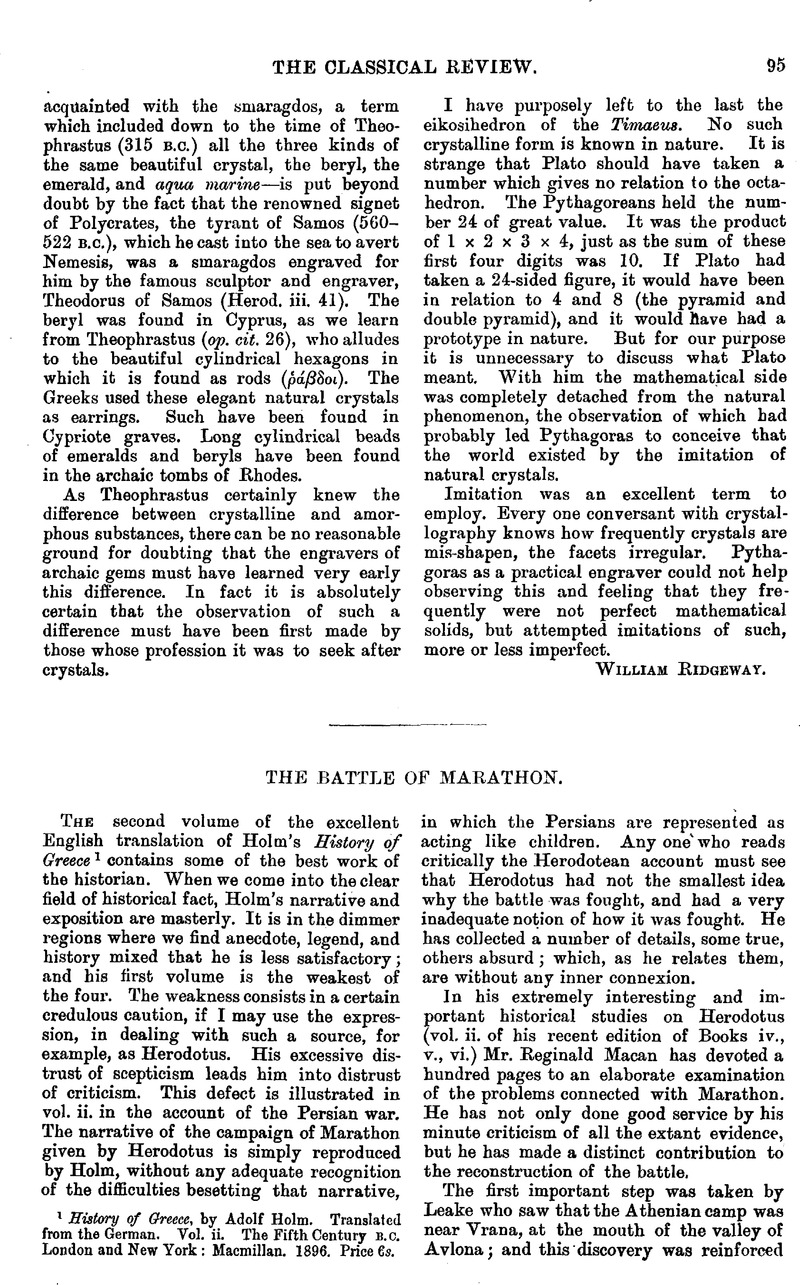No CrossRef data available.
Article contents
Abstract

- Type
- Review Article
- Information
- Copyright
- Copyright © The Classical Association 1896
References
page 95 note 1 History of Greece, by Holm, Adolf. Translated from the German. Vol. ii. The Fifth Century B. C. London and New York : Macmillan. 1896. Price 6s.Google Scholar
page 96 note 1 ‘What became of the cavalry afterwards? Why do we hear nothing of their re-embarkation? What room is there in the story for that lengthy and elaborate operation after the battle? How were they got off? Curtius's suggestion lets in some light on this dark place. The cavalry was brought, as might be supposed, to Marathon, and there put on shore. The cavalry was re-embarked; and its re-embarkation was the reason for the Athenian attack. This suggestion does not leave the cavalry to be accounted for after the battle, as do all the other suggestions previously noticed [Leake's, Blakeslsy's] ; it explains, as well as the suggestions of Leake, of Blakesley, and of Rawlinson, the absence of all notice of the cavalry in the description of the battle; and it explains better than any other hypothesis the determination of the moment of attack.’ But it ‘cannot in itself explain the assumption of the offensive by the Athenians or the probable circumstances of the actual fight.’ (Macan, ii. pp. 163–4.)
page 97 note 1 Holm (p. 18) gives, like others, a second reason for the landing of the Persians at Marathon, the circumstance that it was ‘the district in which the Peisistratidae had long had their adherents.’
page 97 note 2 His words are (vi 124) ⋯νεδ⋯χθη μ⋯ν γ⋯ρ ⋯σπ⋯ς, κα⋯ το⋯το οὐκ ἔστι ἄλλως εἰπεῖν ⋯γ⋯νετο γ⋯ρ ὃς μ⋯ντοι ἦν ⋯ ⋯ναδ⋯ξας οὐκ ἔχω προσωτ⋯ρω εἰπεῖν το⋯των (viz. suspicions about the Alcmaeonidae).
page 98 note 1 I have added this conjecture (which occurred independently to Mr. Marindin), as showing that every eventuality could be provided for easily by the Persian strategy.




